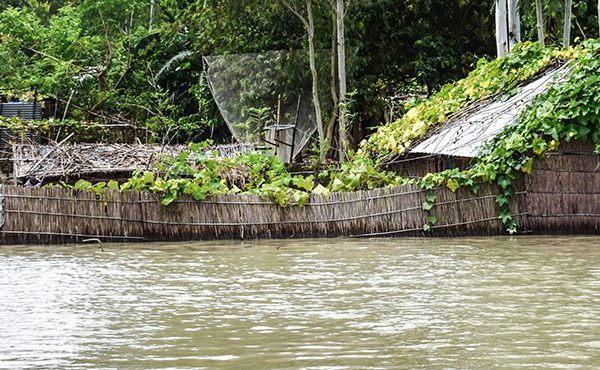What do safe spaces in a humanitarian crisis look like?
Reading Time: 4 minutes
Deep inside the chaotic makeshift settlements of Kutupalong, Cox’s Bazar, is a spacious, shaded, colourful place. A bamboo structure with handmade decorations hanging from the walls. Curious onlookers gather outside the thatched windows, attracted by the rhythm.
A group of young women clad in vibrant headscarves have formed a moving train, hands locked to each other’s shoulders. They stop, look at each other and smile, clapping their hands together, and exploding into song:
We are all together in harmony, we are all together.
Guiding them is a facilitator dressed head to toe in the brightest colours, Hamida Akhter Jahan.
She asks a girl in a pink dress to step forward. Everyone around her claps in encouragement.
The girl starts reciting a traditional Rakhine poem. Everyone chimes in, turning it into an anthem.
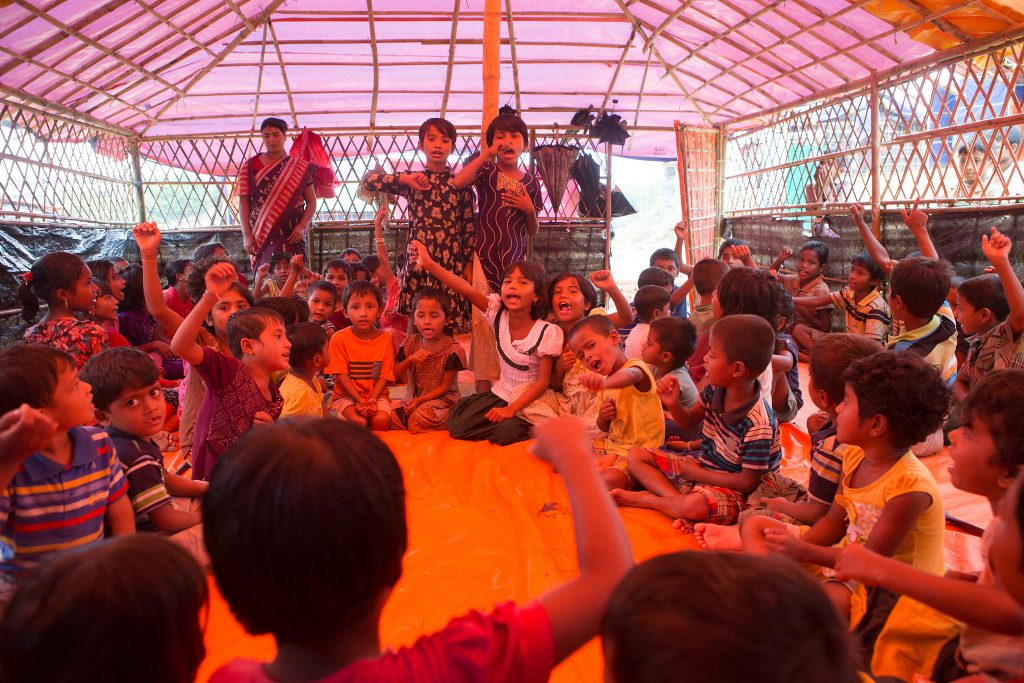
With 192 of these spaces established, these anthems are becoming a familiar and healing sound in the settlements.
As a psychosocial counsellor, Hamida is expected to maintain a sense of detachment. This situation, from the day she arrived here in October, has made that impossible though.
On her first day arriving at the settlements, Hamida witnessed a young mother walking along the side of a road, struggling with a heavy load on her head. It was a relief package, and it was precariously wobbling, while both of her hands clutched tightly at her four little children. None of them had any clothes on and the midday sun was scorching everyone’s backs.
The next day she found a child who had collapsed trying to get home carrying a load much bigger than him, and, in the same day, an absolutely lost and exhausted little girl with no parents who was struggling in the hot sun, and had been wandering for hours up and down slippery, muddy hills.
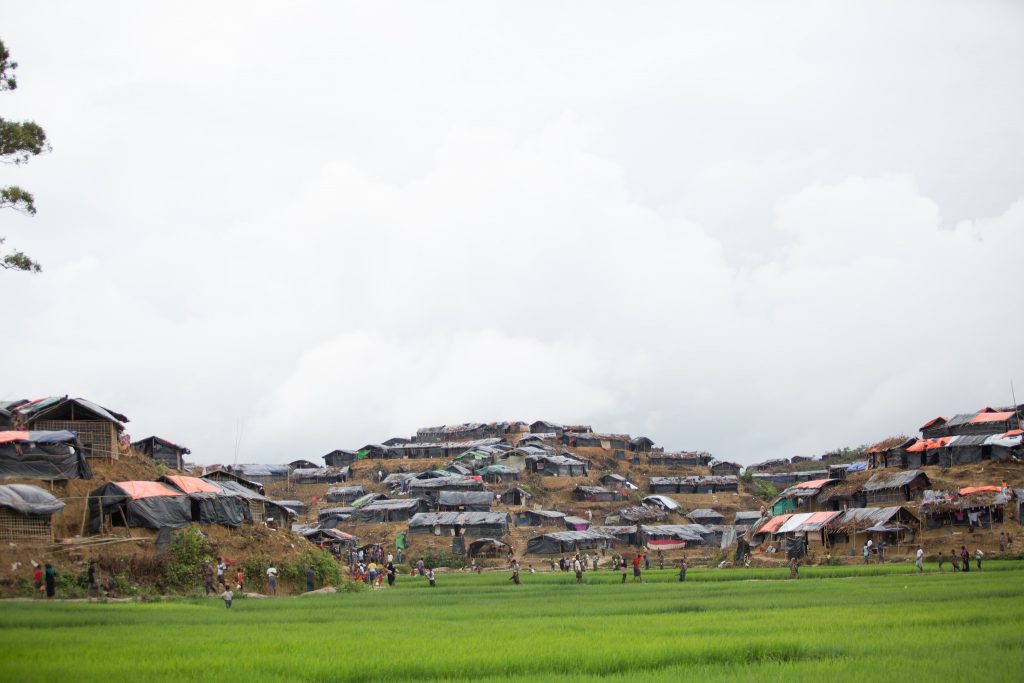
In all her years of working as a counsellor, Hamida had never seen anything like this. The settlements stretched on for miles, unplanned, unsafe, with no space for some peace of mind – and no sense of home.
“It was so difficult at first”, Hamida reflects on her first few days facilitating the child-friendly spaces, “most of the children were quiet, some would not speak at all, and others were restless to leave.”
“On one of my first days here I saw two babies, only a few months old, sleeping naked on a mat in a corner. Their older brother told me there was no other place for them to sleep.”
Every child has witnessed unimaginable situations back home.
Our purpose is not to dive deep into their past personal experiences, but encourage them to be active and participate in positive social activities.”
This approach to trauma counselling is very specific. There are no quiet rooms. No closed doors. No one is asked to talk about what they have previously witnessed.
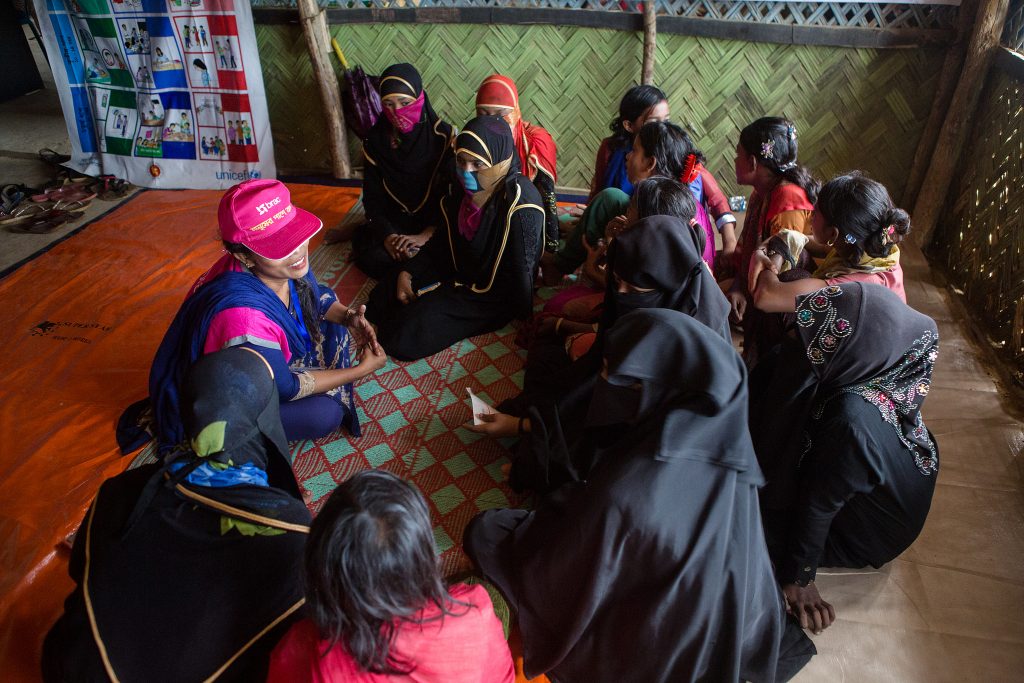
Instead, counsellors work to spread positivity and joy, and strengthen a sense of family and belonging. Children and young women join hands, sing and dance, and engage in positive dialogue.
Importantly, all sessions are conducted in Rakhine language.
“They do not recite a single Bengali poem or song. They do not play any traditional Bengali games. Instead, we ask the children what games they wanted to play, and what songs they want to sing. Unchi Bunch, Poisha Khela, and Roshi Fal are their favourites.”
Facilitators engage the children in play therapy, art therapy and storytelling.
Children take part in role-playing activities, dressing up in costumes, as a king, or queen, or even a frog, if they please.
Special attention is given to appeasing tensions in gender segregation and aggressive behaviour. They also keep a lookout for children in need of special attention, who are referred to special counsellors for a more intensive approach.
Sessions are led by two counsellors – one from the host community, and one from the Myanmar community.
“It helps to break the language barrier, and they love that we are learning their language. We hear their fathers and mothers laughing outside, listening to their children sing songs that sound like home.
“The children are very enthusiastic and responsive. They are always helping each other.”

The child-friendly spaces open at 8:30am, and children under the age of six are seen until 11:00am. From 11:00am to 2:00pm, 6-18 year-olds are seen singing and playing. After 2pm the spaces are open to all. Children of all ages are welcome to play or rest, and everyone takes part in counselling sessions.
Almost 200 child-friendly spaces across the makeshift settlements in Cox’s Bazaar double as counselling centres for young women and children. Almost 77,000 children have been provided with psychosocial support, and over 1,500 adolescent women are regularly participating in sessions.
Over 600,000 people have arrived in Cox’s Bazaar from the Rakhine state of Myanmar. More than half of the over 600,000 people who have arrived from Myanmar are women and children, and most have suffered sexual and gender-based violence.
“This is a very sensitive kind of work. We need to actively listen, be extra sensitive to behaviour, language and maintain very strict confidentiality. It is crucial that, no matter what happens, we remain non-judgmental and loving.”
Hamida works as the field coordinator for all the settlements, recruiting, training and working closely with outreach workers from both the host and Myanmar communities. She conducts orientations, bi-monthly refresher trainings, and monitors and supervises all activities.
Hamida’s work is essential in establishing a sense of normalcy in the midst of the fastest growing humanitarian crisis in the world.
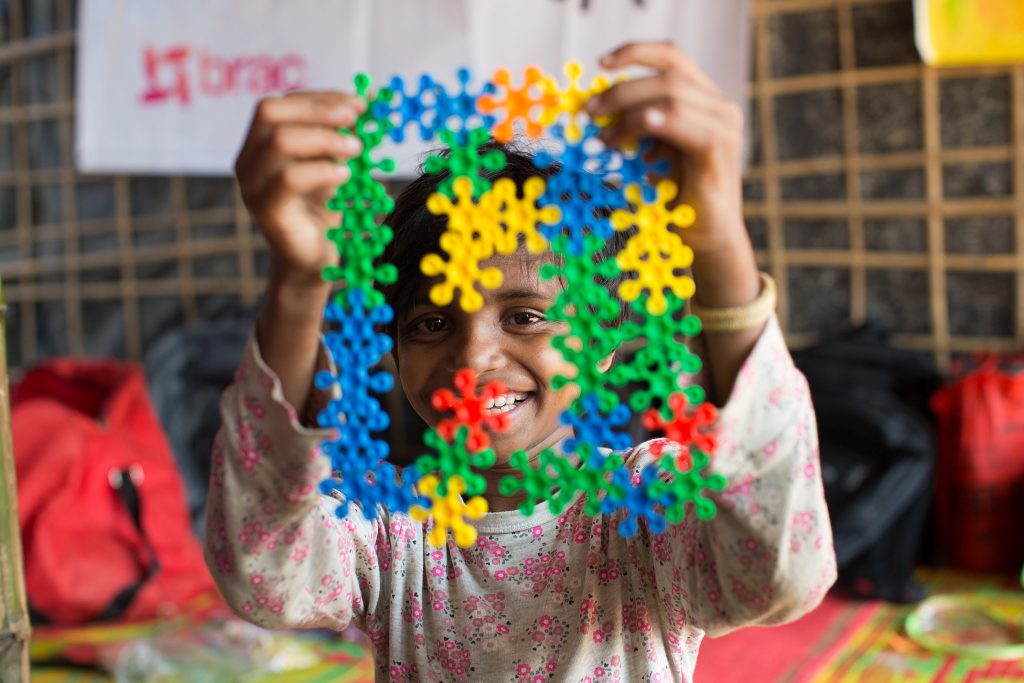
With no place to call home, girls and boys have found a safe place in these spaces.
“Above all else, we want everyone who comes through these doors to know that they are safe here. While the situation outside may be uncertain, they can come here every day and be themselves – or kings, queens, lions or frogs. They can be happy and free. This security is the strongest tool in combatting the uncertainty outside. ”



